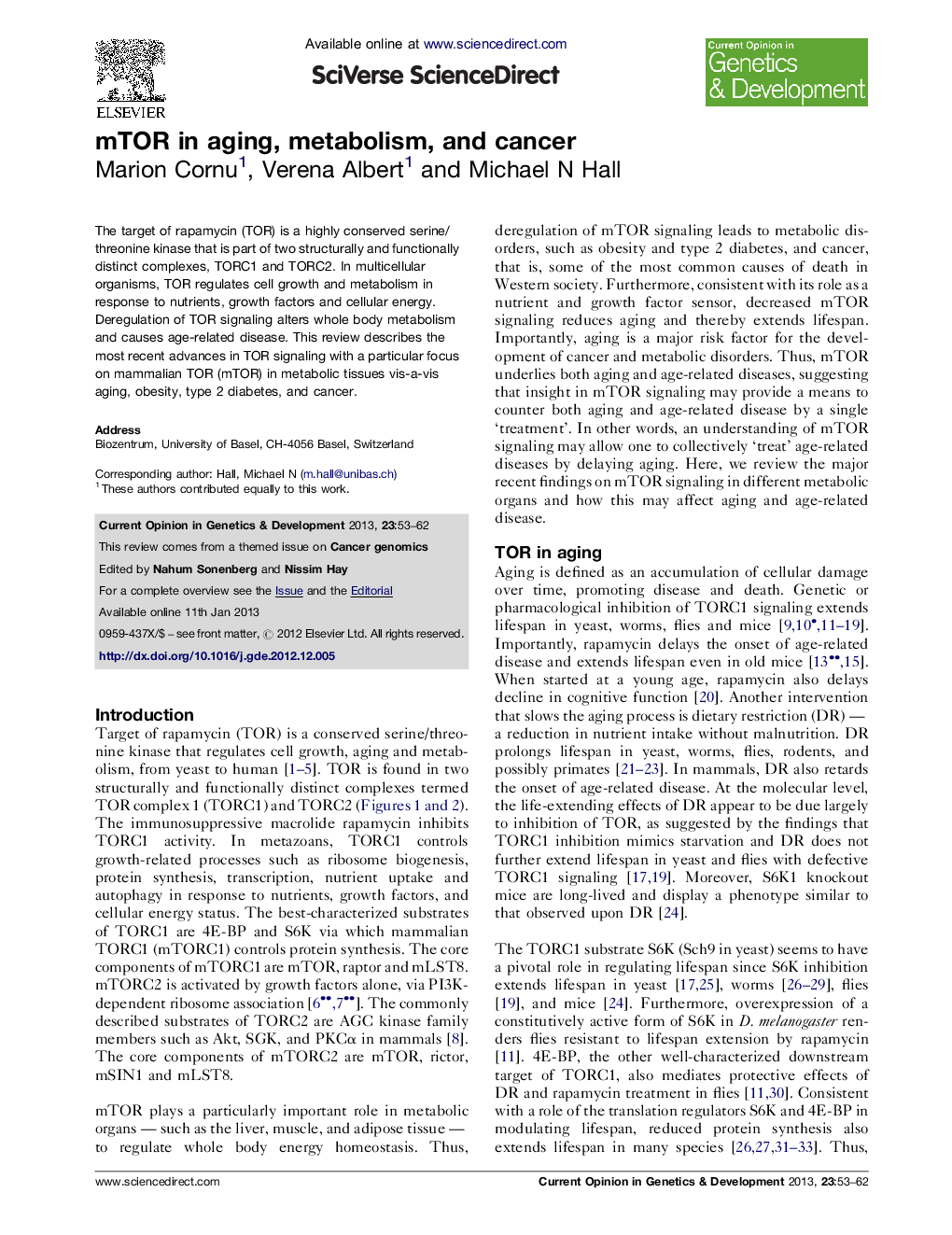| Article ID | Journal | Published Year | Pages | File Type |
|---|---|---|---|---|
| 5893485 | Current Opinion in Genetics & Development | 2013 | 10 Pages |
Abstract
The target of rapamycin (TOR) is a highly conserved serine/threonine kinase that is part of two structurally and functionally distinct complexes, TORC1 and TORC2. In multicellular organisms, TOR regulates cell growth and metabolism in response to nutrients, growth factors and cellular energy. Deregulation of TOR signaling alters whole body metabolism and causes age-related disease. This review describes the most recent advances in TOR signaling with a particular focus on mammalian TOR (mTOR) in metabolic tissues vis-a-vis aging, obesity, type 2 diabetes, and cancer.
Related Topics
Life Sciences
Biochemistry, Genetics and Molecular Biology
Developmental Biology
Authors
Marion Cornu, Verena Albert, Michael N Hall,
